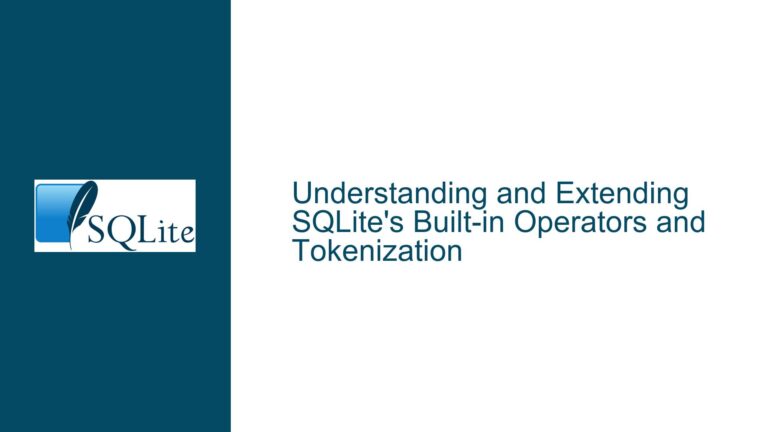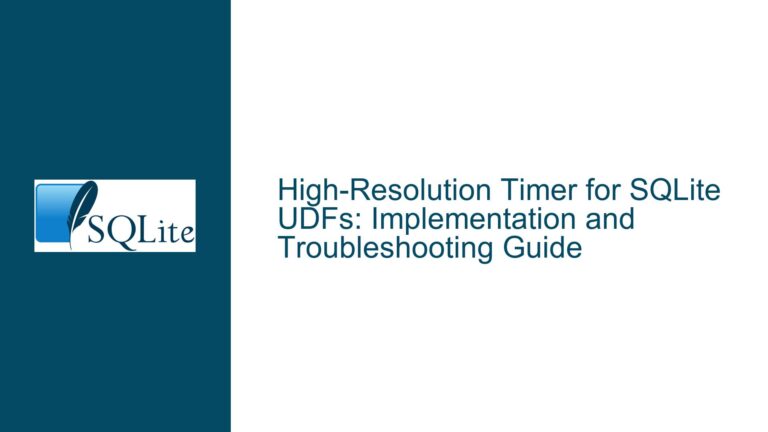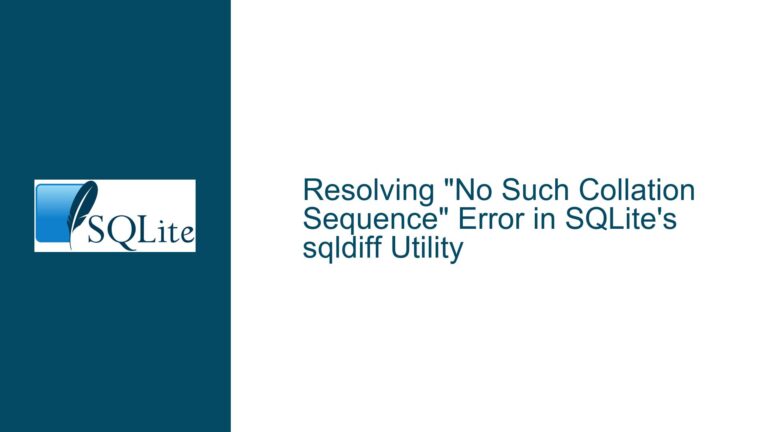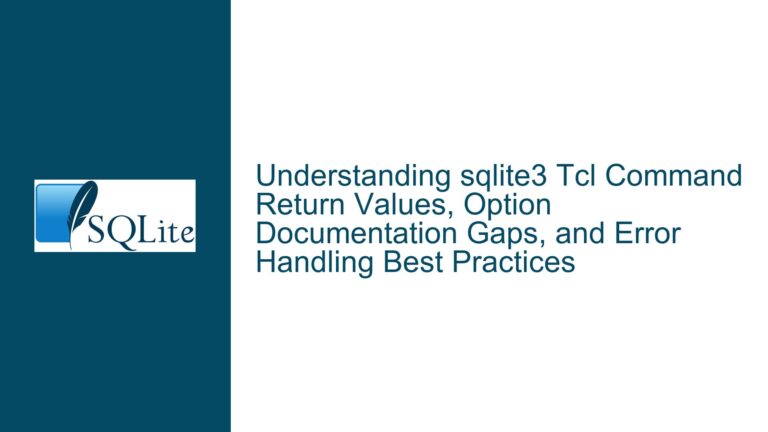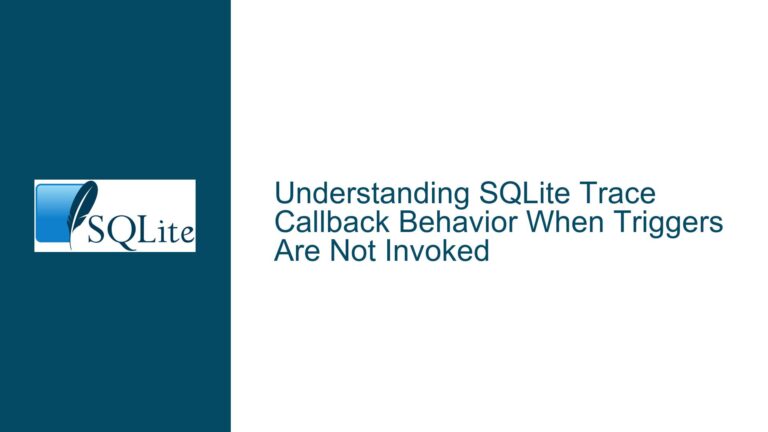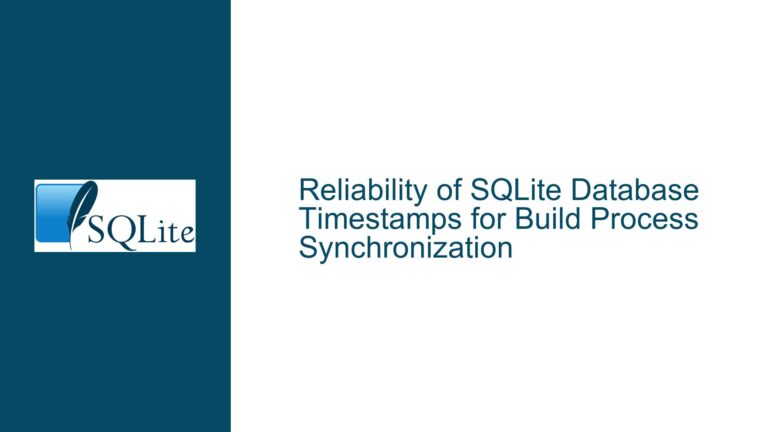Renaming Primary Key Columns in SQLite: Version Constraints and Workarounds
Understanding ALTER TABLE Limitations with Primary Key Renames The core issue revolves around attempting to rename a primary key column in an SQLite database using the ALTER TABLE RENAME COLUMN command, resulting in a syntax error. This situation reveals critical limitations in older SQLite versions and exposes fundamental architectural constraints in SQLite’s schema modification capabilities….



